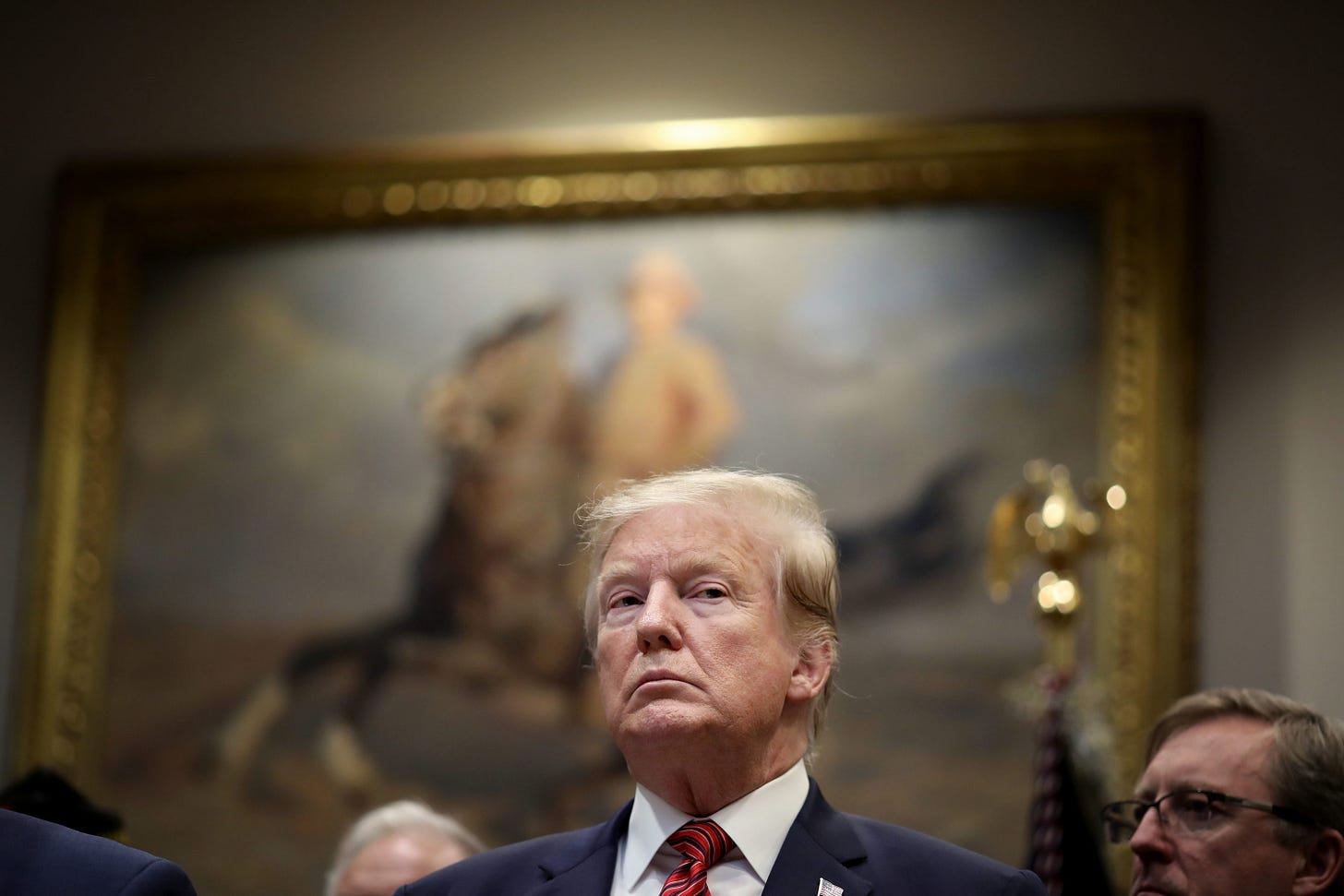The Argument That the President ‘Cannot Be Indicted’ Is Surprisingly Weak
It’s not in the Constitution. It’s not a law. It’s not even a regulation.
In a CNN face-off between former independent counsel Ken Starr and President Clinton’s former press secretary Joe Lockhart last week, Starr dropped a mini-bombshell, saying that he “disagree[s] with the Justice Department’s guidelines” that a sitting president cannot be indicted.
Starr’s comment is significant because it properly calls into question the regularly reported claim that President Trump “cannot be indicted.”
For non-lawyers, it’s important to emphasize that the no-indictment “rule” is not in the Constitution. It’s not contained in an opinion by the U.S. Supreme Court. It’s not in a statute. It’s not even in an agency regulation (unlike the rules governing the special counsel’s investigation, for example).
It’s contained in a memo produced by lawyers in the Department of Justice at the apparent behest of President Clinton—and on the heels of the Starr investigation. In an equally thoughtful and timely legal analysis, Starr’s team concluded the opposite—that “President Clinton is subject to indictment and criminal prosecution, although it may be the case that he could not be imprisoned (assuming that he is convicted and that imprisonment is the appropriate punishment) until after he leaves office.”
Why the disparity among legal “experts”?
It’s important to note that the argument against indicting a president has nothing to do with the availability of impeachment. The DoJ memo declares that “the Impeachment Clause could not itself be said to be the basis for a presidential immunity from indictment or criminal trial.”
So where does the president’s alleged immunity from indictment come from?
The argument is a wholly pragmatic one: In DoJ’s words, “criminal proceedings against a sitting President should be barred by the doctrine of separation of powers because such proceedings would unduly interfere in a direct or formal sense with the conduct of the Presidency.” In short, if Trump were indicted, he wouldn’t be able to execute his job as president to the best of his capacity.
This is a pretty thin reed upon which to hold the presidency above the criminal laws. After all, the Supreme Court already held in a case called Clinton v. Jones (yes that’s Bill Clinton and an alleged sexual harassment victim, Paula Jones) that no sitting president is too busy to take the time to sit for a civil deposition to determine his potential liability for money damages to a single individual. And of course, the Constitution itself contemplates that quasi-indictment of the president via articles of impeachment and a trial in the Senate would not be too burdensome or distracting for a president.
There must be something special about a criminal indictment, then, that would make it extra hard for a president to execute the duties of his office. So hard, in fact, that the Constitution must be read implicitly (not expressly, mind you) to ban the practice.
On this point, the DoJ memorandum reasons, first, that “physical disabilities ... imposed by criminal prosecution” (meaning jail time, presumably) are a no-go. That’s a hard one to dispute.
But the memo goes further, arguing second (and quoting from a prior DoJ memo on the subject, which was written during the embattled Nixon presidency), that “the President is the symbolic head of the Nation. To wound him by a criminal proceeding is to hamstring the operation of the whole governmental apparatus, both in foreign and domestic affairs.”
It would cause widespread damage to the symbolic stature of the office, in other words, to indict a sitting president.
With 17 ongoing investigations into Team Trump so far (not including the ramping-up congressional ones), this argument against criminal indictment of a president seems a bit naïve, if not silly, in 2019.
The memo goes on to note that “[a] criminal trial of a sitting President ... would confer upon a jury of twelve the power, in effect, to overturn [a] national election.” Of course, this is what happens whenever a sitting member of Congress is indicted for commission of crimes, and nobody cries constitutional foul then.
The easy answer to such a conundrum would be to indict a deserving president for purposes of tolling the statute of limitations—which is generally five years for federal crimes—and conduct the trial once the president is a private citizen and no longer in office. The DoJ memo doesn’t address this seemingly easy fix to what is otherwise a full-blown constitutional crisis of unaccountability at the highest echelon of power in the United States.
One thing is for sure: If a sitting president made it a habit of shooting bystanders through the window of his limo while rolling down Fifth Avenue in New York, or if he regularly siphoned off U.S. Treasury funds to a personal bank account in the Seychelles, nobody would expect law enforcement to turn a blind eye because the Constitution somehow implicitly requires it. The constant refrain of “you can’t indict a president” is thus vastly overblown.
Moreover, that a decision of such momentousness is being dictated by a 19-year-old internal memo drafted by unelected employees within the president’s chain of command should trigger deep skepticism in all of us. The question whether it’s constitutional for a president to be indicted can be resolved definitively only by the U.S. Supreme Court.
And the only way to get the question before that body is—if warranted by the facts, of course—for a grand jury to issue an indictment and see how things shake out for this president, and for those that follow.



